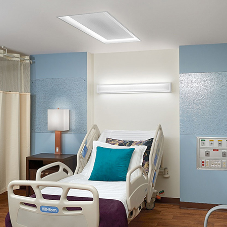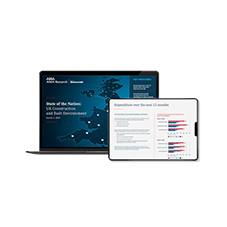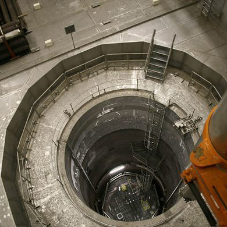Tom Reynolds, Chief Executive of the Bathroom Manufacturers Association, outlines the importance of being “Reg 4” compliant and the changes on the horizon
Credible manufacturers are committed to delivering products that not only comply with customer satisfaction but also ensure safety and reliability. This often goes beyond the legal requirements; they voluntarily go above and beyond through rigorous testing protocols and even third-party certification processes. This entails significant costs but demonstrates a commitment to providing customers with quality water fittings, preventing any contamination of drinking water and high levels of protection for human health. Savvy purchasers look for reputable brands that have been extensively tested to feel confident knowing their fitting lives up to their promises regarding trusted performance.
Compliance with UK Water Regulation 4 is a hot topic within the BMA; it's an area that's too often misunderstood. “WRAS Approval” is often incorrectly assumed to be a legal requirement. This is simply not the case. The correct language should be "regulation 4 compliant” as there are other test laboratories with approval schemes, all carrying an equal level of assurance.
It's crucial for specifiers and installers to stay up-to-date with the third-party certifications that are available. WRAS, along with other respected "Reg 4" schemes from NSF and Kiwa UK, provide peace of mind that products meet suitable standards - but it’s worth noting that this isn't a legal requirement. By familiarising yourself with these three organisations, you can rest assured that your fittings comply with water regulation requirements.
There is a real benefit to recognising the various approvals on offer- it means greater capacity to bring innovative new products to market quicker. In addition, it ensures a level playing field as no scheme is given an unfair advantage over another. BMA works tirelessly to ensure companies who invest in compliance don't face disadvantages compared to those who neglect proper regulatory requirements. It is a sad fact that products exist that are non-compliant, selling consumers short and risking their safety. We remain committed to ensuring all areas of regulation are met at every opportunity possible.
Changes ahead
In August 2022, Defra and the Welsh Government launched a consultation on proposed amendments to the WC Suite Performance Specification, the Specification on the Prevention of Backflow and associated Test Code Sheets. The consultation sought to address backflow incidents from WC cisterns while reflecting innovations in the design of WC suites and gathering evidence on faulty toilet valves. The BMA responded to the consultation, which closed in October 2022, supporting many of the proposals, subject to slight amends.
On the ‘leaky loo’ aspect of the consultation, BMA members take this issue very seriously and are developing products to prevent leaks that will be adopted over time. Investment into serious research on how installations can be monitored for real and actual waste of water through WCs would be beneficial, as would an approved installer scheme to ensure everything works as it should, with customer advice meaningfully communicated.
In February this year, the Government notified the WTO that the UK Water Supply Regulation would be proposed to be adopted in July 2023 and enforced 12 months after adoption, as opposed to the original deadline of March 2023. It is disappointing as the delay could prevent companies from getting product approvals before the new specification is implemented later in the year. In addition, this backflow issue has been on our radar for over four years, proving that Whitehall has limited bandwidth to ensure these critical changes despite the obvious political will for a solution.
Our technical committees continue to discuss backflow standards to ensure WC specifications are relevant and that outdated Test Code Sheets are appropriately updated or replaced by enhanced standards.
Many of the changes should be welcome. Our industry is constantly innovating to meet ongoing challenges and improvements in design to offer superior products for consumers. Standards and regulations need to change too, to keep up.
Whatever the outcome of the new proposals, compliance with water regulation requirements remains our top priority. End-users can rest assured that BMA members will demonstrate proper compliance and will continue to protect the consumer through the three test laboratories, Kiwa UK, NSF, and WRAS.
Related Blog Articles



crop192.png)












